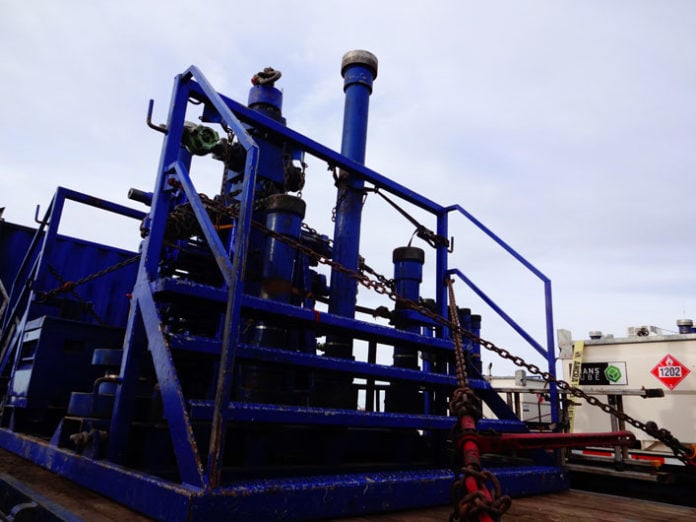Hydraulic fracturing is a very effective well stimulation method that can drastically increase the production from low permeability formations such as shale.
It is done by pumping a mixture of water, sand, and chemicals into the formation to create small fractures that allow hydrocarbons to flow more easily into the wellbore.
Unfortunately, this method is often misunderstood and here we will discuss the main pros and cons of hydraulic fracturing.
Related: What is Hydraulic Fracturing?
Advantages of Hydraulic Fracturing
1. Significantly increases oil and gas production
Shale formations have very low permeability and oil and gas are trapped in small pores in the shale rock. Creating small fractures in a rock allows trapped hydrocarbons to escape and flow into the wellbore.
2. Provides jobs
From oil field workers to hotels and restaurants everyone gains something whenever there is a boom in frac activity. Provinces and states see an increase in revenue due to profits from taxes and royalties.
3. Decreases dependence on foreign oil and gas
It allows us to decrease the amount of oil we import from other countries with unstable governments and gives us extra protection in case those imports are interrupted.
Importing hydrocarbons from other countries creates a lot of greenhouse emissions because of the burned fuel required to transport hydrocarbons.
In addition, not every country uses a responsible approach when it comes to the development of hydrocarbons.
4. Natural gas is a cleaner fuel
Natural gas produced during fracturing operations is an environmentally friendly alternative to coal used in some power plants.
If we could switch all the coal plants in the world to natural gas, we would see a significant decrease in greenhouse emissions right away.
An even better approach that some companies are working on is to install scrubbers and capture all the CO2 created when natural gas is burned and use it for something or inject it back into the formation.
Related: What is Proppant in Oil and Gas?
Disadvantages of Hydraulic Fracturing
1. Minor earthquakes
The main fear public has about fracturing is that it can potentially create small earthquakes. Most critics of fracturing reference statistics that show that in the areas with a lot of fracking activities number of earthquakes increased in the past several years.
However, it is also possible that having a lot of smaller earthquakes that we can’t feel can help to avoid a bigger one by slowly releasing the energy created when two tectonic plates push against each other.
2. High water consumption
Hydraulic fracturing requires a lot of water. However, a large amount of the fluid is recovered during the flow back and reused for future fracturing operations.
Also advances in fracturing technologies and methods like annular frac with shifting sleeves significantly decrease the volume of fluid required for the frac.
3. Noise pollution
Fracturing requires a lot of pumps and sand trucks which can create quite a bit of noise while operating. However, most frac operations happen in sparsely populated areas.
Some companies are also starting to use electrical fleets that work at significantly lower noise levels.
4. The very remote chance of contamination of groundwater
During the fracking process, various chemicals are injected with the fluid in order to decrease the pumping pressures, kill bacteria, and increase viscosity.
Additionally, sometimes radioactive tracers with very short half-lives are used to get a better idea about the location of the newly created fractures.
There is a very remote possibility that during fracturing something might happen that will allow some of the frac fluids to enter the groundwater sources.
However, fracking is done a few kilometers underground and it is highly unlikely that contamination might ever occur. There is also a trend in the industry towards using “green” non-toxic chemicals.
These are the main pros and cons of using hydraulic fracturing.
Most of the disadvantages can be avoided with an effective frac job design, using the right chemicals, and having proper regulations.
Read next: Top 10 Chemicals Used In Hydraulic Fracturing Process
